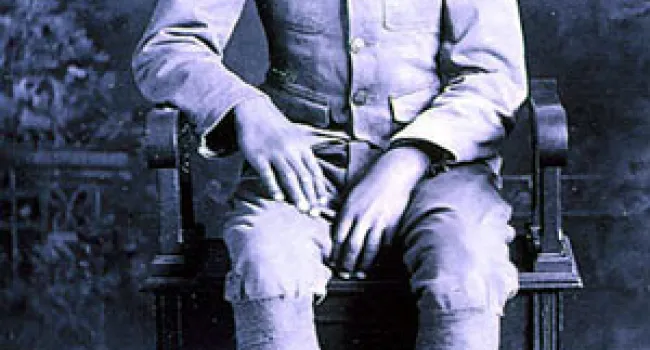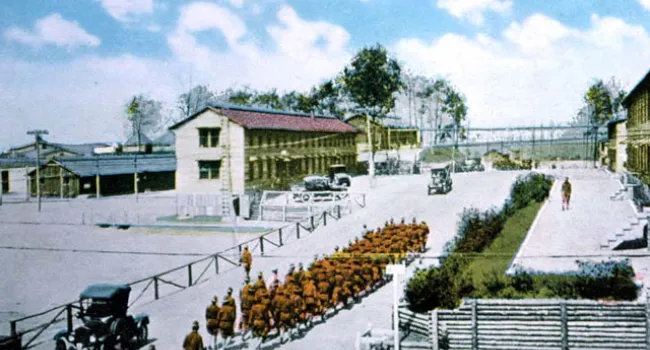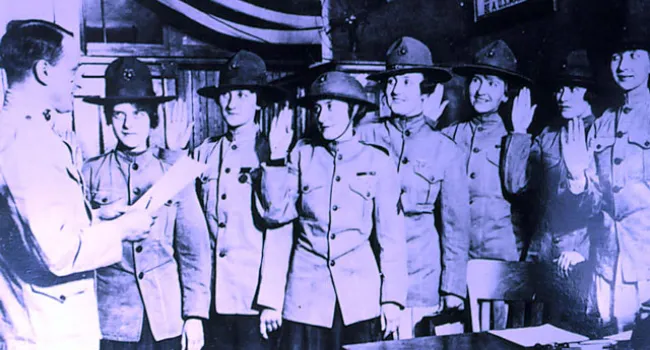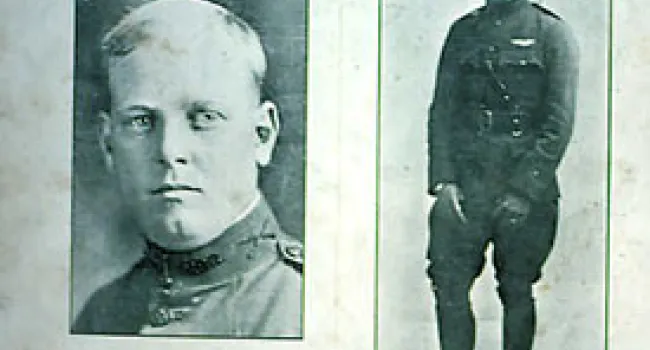
The First World War ended with the surrender of Germany "at the eleventh hour, on the eleventh day, on the eleventh month." This headline in "The State" newspaper on November 11, 1918, brought news of the end of that war to South Carolinians. Woodrow Wilson, the president who had grown up in Columbia, had hoped to lead the world to lasting peace through a plan known as the Fourteen Points, promising the Germans what seemed to be fair treatment without vindictive punishment if they would end the war. But when Wilson traveled to Versailles to work out the details of the peace, his English and French allies were less generous. Although the Treaty of Versailles did have the League of Nations built into its provisions as a means of resolving national differences in an international forum, punishing reparations payments were demanded of the Germans; their empire of colonies was divided (with many of their former colonists given only limited freedom as "mandates" of Germany's former foes). Under the terms of the U.S. Constitution, the Senate must ratify all treaties by a two-thirds majority for them to become binding on the U.S. Many senators feared that an international body would limit American sovereignty and freedom of action. In the end, the Senate rejected the Treaty of Versailles and the League, and the United States did not sign a separate peace treaty with Germany.
Courtesy of the South Caroliniana Library.







